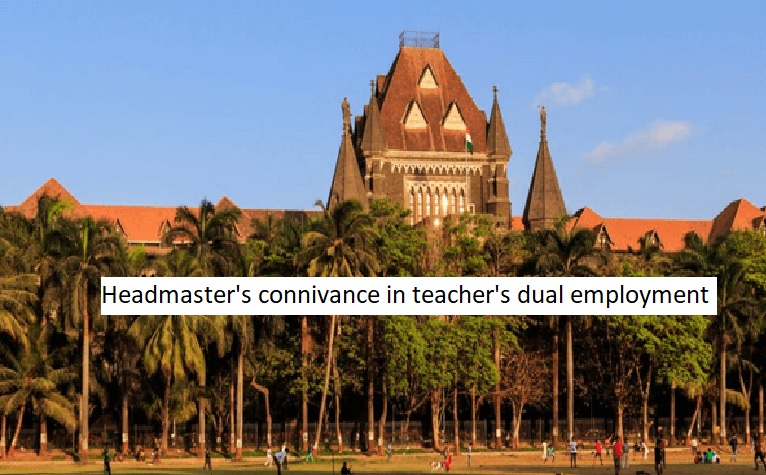


The Aurangabad bench of the Bombay High Court recently invalidated a state government directive appointing an administrator for an Ashram School in Nanded District. This decision was based on the revelation that one of the teachers had obtained employment elsewhere, allegedly with the headmaster's collusion.
A division bench comprising Justice Mangesh S Patil and Justice Neeraj P Dhote declared the order unsustainable, asserting that the grounds for appointing an administrator did not align with the circumstances outlined in clause 3.2 (Appointment of Administrator) of the Ashram School Code.
The court noted that the accusation of a teacher working in two places, known to the headmaster, did not fit within any of the specified clauses. Furthermore, the order and the responding affidavit failed to specify the category under which the alleged misconduct of the teacher and headmaster fell.
Emphasizing a lack of authority, the court observed that the Deputy Secretary of the Other Backward Bahujan Welfare Department, who issued the order, lacked the power to appoint an administrator under the Ashram School Code in conjunction with section 3 of the Educational Institute Management Act, 1976.
The communication from the state government, dated August 21, 2023, mandated the appointment of the Regional Deputy Director of the Other Backward Bahujan Welfare Department as an administrator over the petitioner's school. Simultaneously, it sought a proposal for revoking the school's permission. In response, Mataji Educational Institution, representing the school management, filed a writ petition challenging this communication.
Advocate RJ Godbole, representing the petitioners, contended that according to clause 3.2 of the Ashram School Code read with section 3 of the 1976 Act, only specific authorities—namely, the Assistant Director, Assistant Commissioner, District Social Welfare Officer—were empowered to appoint an administrator. He argued that the Deputy Secretary, who issued the communication, lacked the authority to pass such an order.
Godbole further argued that the severe action of appointing an administrator was disproportionate to the misconduct of one teacher and allegations of connivance with the headmaster. Even if the headmaster and the teacher colluded during the teacher's temporary engagement elsewhere, the management should not be held responsible, according to Godbole.
Additionally, Godbole asserted that any instances of misconduct did not align with the categories outlined in clause 3.2 of the Code, which enumerates 12 circumstances warranting the appointment of an administrator.
The State, represented by AGP SR Yadav-Lonikar, insisted on serious irregularities in the school's management, justifying the appointment of an administrator. The AGP argued that the headmaster and teacher had acted against the school's welfare, necessitating the department's intervention.
The court observed that the impugned order and the affidavit in response to the writ petition did not explicitly cite the legal provisions justifying the appointment of an administrator. Relying on clause 3.2 of the Code, the court reiterated that specific authorities were empowered to appoint an administrator.
The impugned communication appointed the Regional Deputy Director as the administrator, but the court, regardless of the reason for invoking the power under clause 3.2, stated that the order was devoid of any legal authority.
Consequently, the court granted the writ petition, nullifying the impugned order. If the administrator had assumed control, the court directed an immediate restoration of authority to the petitioners.
TAGS: Bombay High Court Ashram School Nanded District Administrator appointment Teacher misconduct